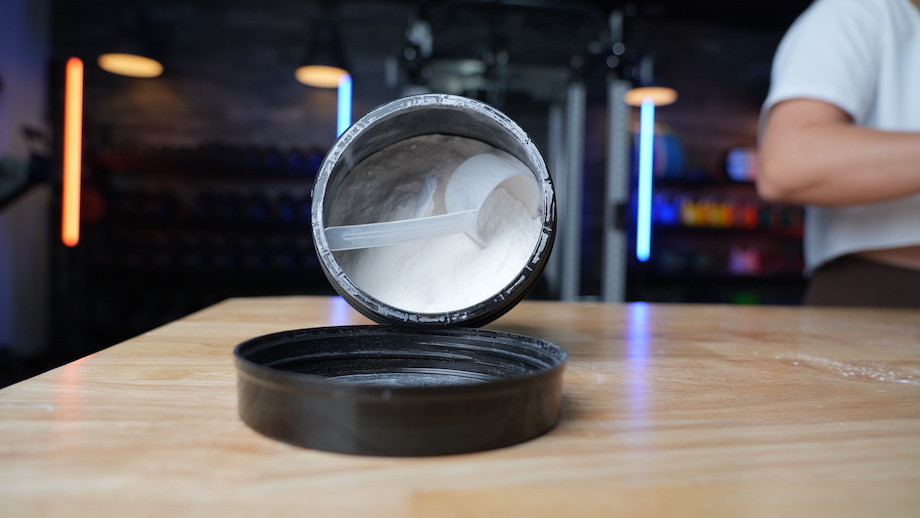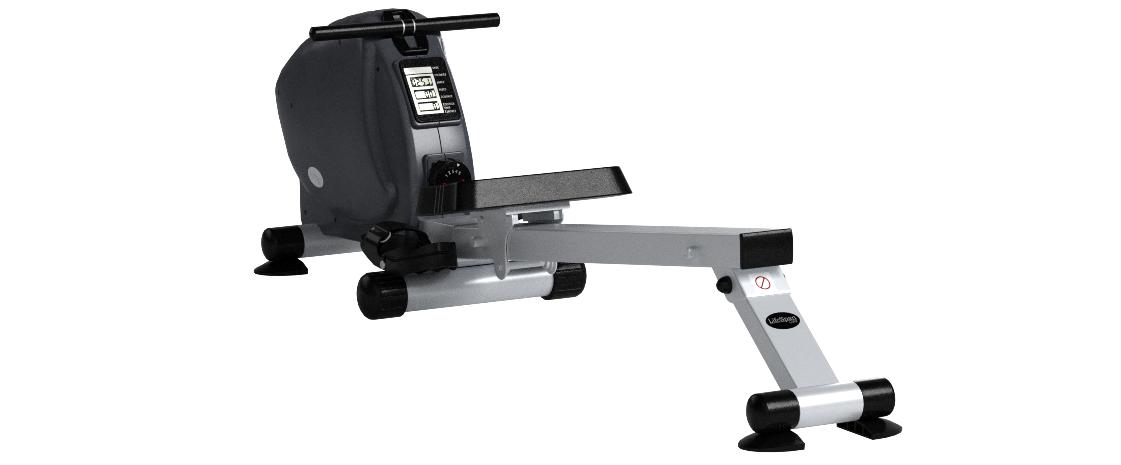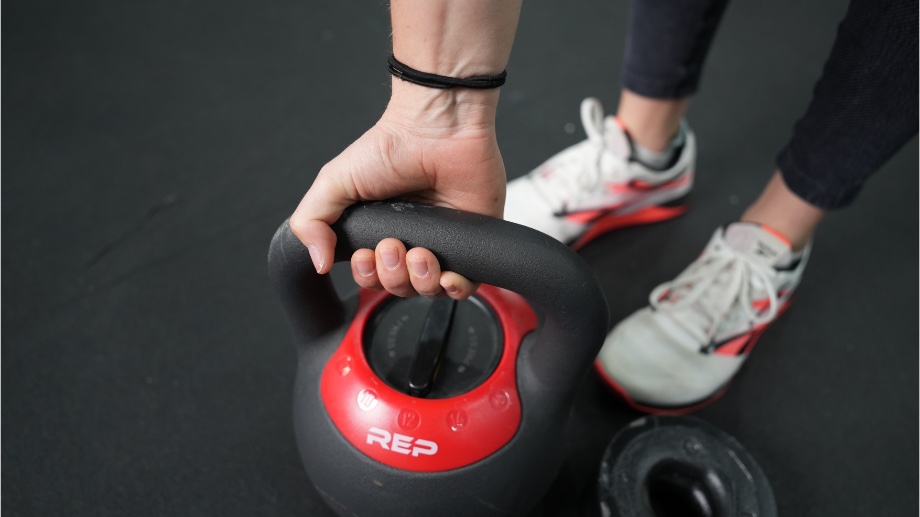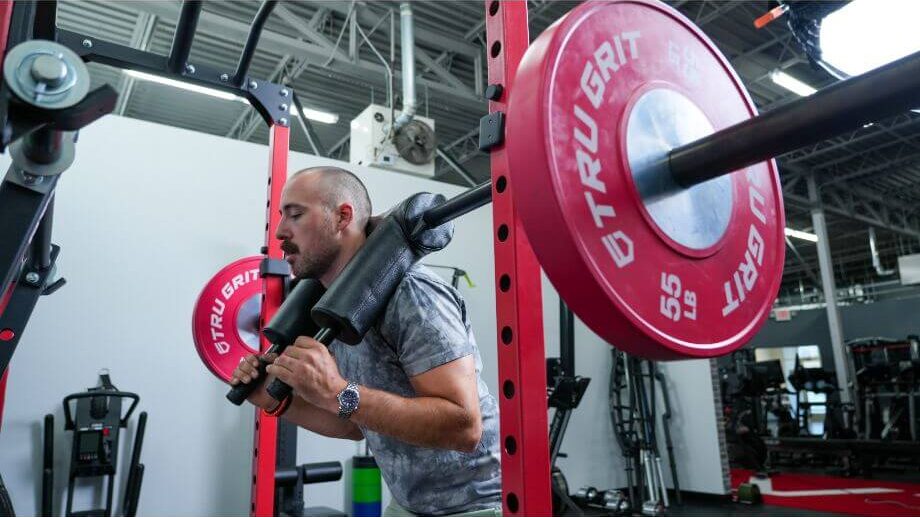If you’re looking to optimize your training and set new PRs in the gym while building lean muscle, you’ve probably read that the best pre-workouts and the best protein powders are essential supplements to have on hand. Whether you’re looking to bulk up and build lean muscle, or you’re looking to reduce your body weight, both types of supplements can be very beneficial.
If you’re new to fitness, the better option may not be as clear. Both can benefit your goals, but they’re completely different supplements serving different purposes.
In this guide to pre-workout vs protein powder, I’ll explain the key differences, the benefits of each, and how to use both supplements to help you reach your fitness goals. I’m a Precision Nutrition Level 1 coach, and I’ve been working with clients as a personal trainer and online coach since 2012, so I have plenty of experience with both supplements.
Pre-Workout vs Protein Powder: What’s the Difference?
The main difference can be boiled down to one line: pre-workout supplements primarily improve your performance and boost energy levels, while protein supplements focus on improving your recovery.
Yes, there’s a bit of crossover, as pre-workout supplements may contain ingredients beneficial for recovery, and some people use protein powder before a workout, but overall, they accomplish different goals.
Let’s take a closer look.
Pre-Workout Supplements
Pre-workout supplements put a little extra gas in the tank so you can train longer, work harder, lift more weights, and stay focused and energized during your workout. They generally come in a convenient powder form that you mix with liquid and drink, though pre-workout gummies and chewable supplements are becoming more popular.
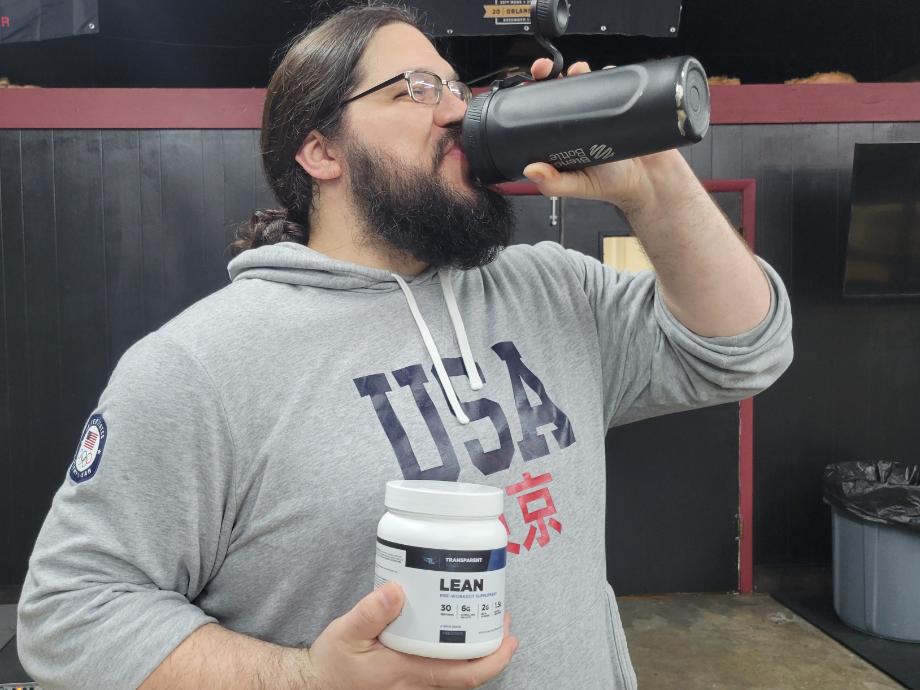
While the best stim-free pre-workouts cater to those looking to avoid stimulants, most pre-workout formulas are caffeine-powered and may include other stimulants, like taurine, that can boost your energy. Pre-workouts may cause more side effects due to the ingredients, like itchy skin, an elevated heart rate, or nausea1, but they’re generally safe when used at the appropriate doses.
In addition to stimulants, pre-workouts often contain ingredients designed to improve blood flow, delay muscle fatigue, improve mental focus, and improve athletic performance. Many find that taking a pre-workout 15 to 20 minutes before training is perfect to feel the effects, but those who metabolize caffeine slower may need a full hour.
RELATED: When to Take Pre-Workout
Protein Powder
A high-quality protein powder will provide all nine essential amino acids, the building blocks of muscle tissue you consume through food or supplements. Dairy-based protein powders generally use whey protein concentrate, whey protein isolate, or casein protein.
RELATED: Types of Protein Powder
Plant-based proteins that use ingredients such as rice protein, pea protein, soy protein, and more—and both plant-based and dairy-based protein powders—do a great job helping you recover from training sessions on your wellness journey.
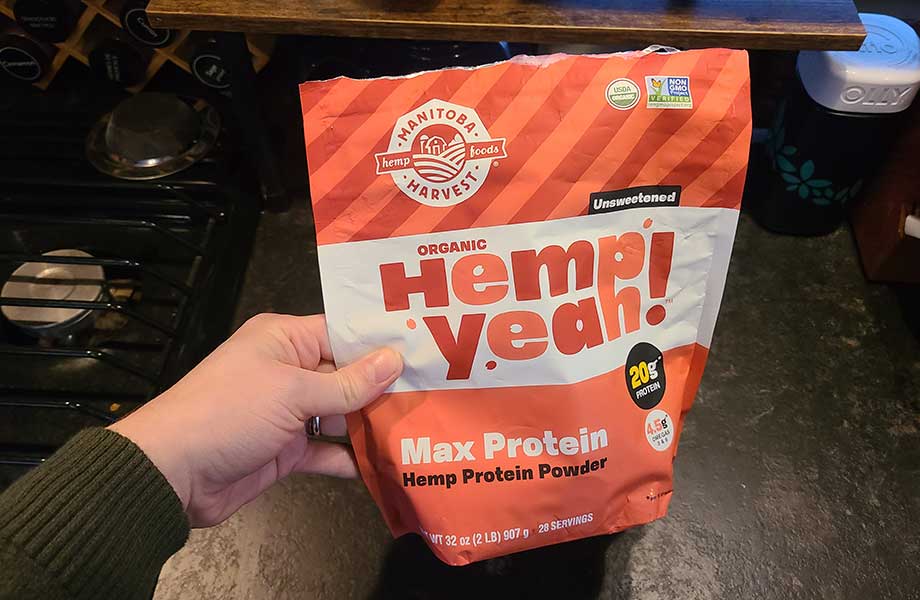
Protein powders are often used for recovery, as most deliver at least 20 to 25 grams of protein, and can help support nutritional goals as well. While pre-workouts have a specific window of use, you can consume protein powder at any time.
While some gym-goers tend to drink their protein shakes post-workout, you can absolutely drink them before your training. As Destini Moody, a registered dietitian, pointed out, many users drink whey protein powders before their workout, because it’s easily digestible and ensures the amino acids are already absorbed and ready to go when you complete your final set, so you don’t have to wait for the protein to fully digest.
Research supports this2, showing that pre-workout and post-workout protein intake have similar impacts on body composition and strength, supporting increased muscle building and fat loss.
RELATED: When to Take Protein Powder
Benefits of Pre-Workout Supplements
Now that I’ve covered the main differences, here are the benefits of using a high-quality pre-workout supplement.
May Help Improve Strength and Power Output
Depending on the ingredients used, pre-workout supplements may improve your strength and power output, allowing you to lift heavier weights and get a few more reps in each set.
RELATED: Best Pre-Workout Ingredients
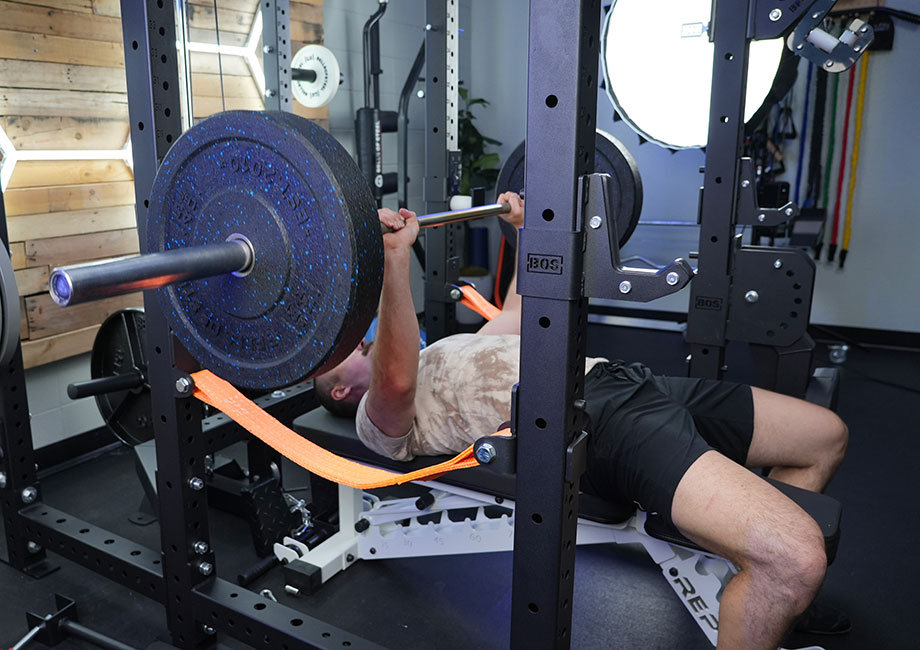
This will vary based on the ingredients in your pre-workout, so be sure to look for specific ingredients that can support your strength. Creatine can improve strength and power3, and is one of the most commonly used performance supplements. Caffeine has also been shown to increase muscle strength and power4.
May Help Delay Muscle Fatigue
Because no supplement can unlock unlimited stamina—not yet anyway—your muscles will fatigue when you exercise. However, certain ingredients can help, like beta-alanine, which has been shown to improve exercise performance5 and stamina by delaying the buildup of acid in your muscle tissue.
May Help Improve Blood Flow
Many pre-workouts contain ingredients specifically designed to improve blood flow. Not only can this help deliver nutrients and oxygen to your tired muscles, but many enjoy the pump they get from resistance training.
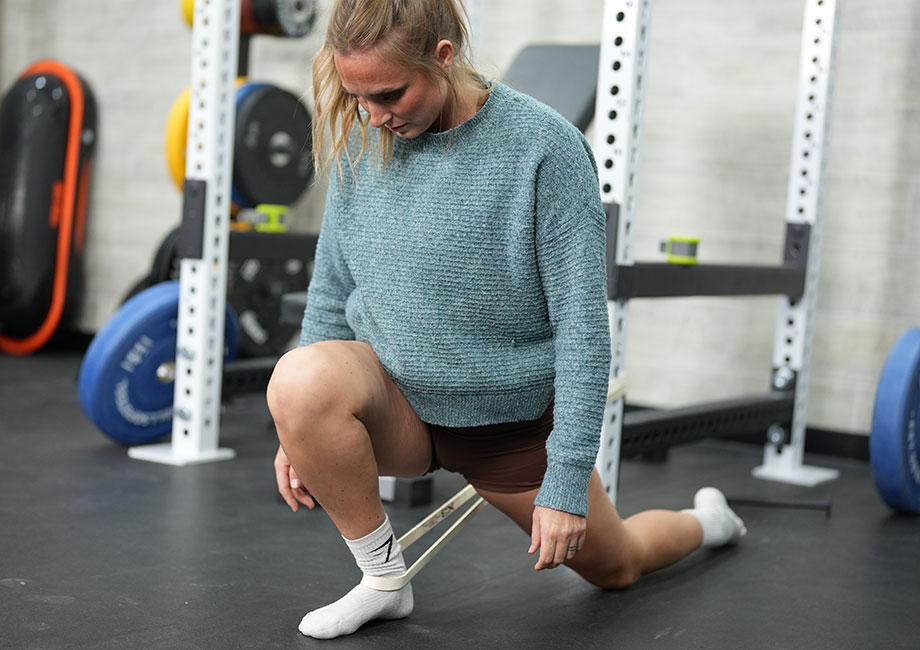
There are plenty of pre-workouts that directly include “pump” in the name if that’s what you’re looking for, but the main pump ingredients are citrulline malate, which enhances blood flow6 to the muscles, and l-arginine, an ingredient that increases blood muscle volume7.
RELATED: Best Pump Pre-Workout
Benefits of Protein Powder
Now that I’ve covered the benefits of pre-workout supplements, here are the most important benefits of protein powder.
May Contribute to Muscle Growth
The biggest benefit, by far, is muscle growth. Most protein powders are complete proteins, which means they supply all of the essential amino acids your body can’t produce on its own.
Resistance training creates stress on your muscles and slightly damages them, and if you’re taking in enough protein, your body will have the amino acids required to rebuild your muscles bigger and stronger. Of course, you can get your protein from food, but many struggle with this, so a shake is a convenient way to boost your daily protein intake.
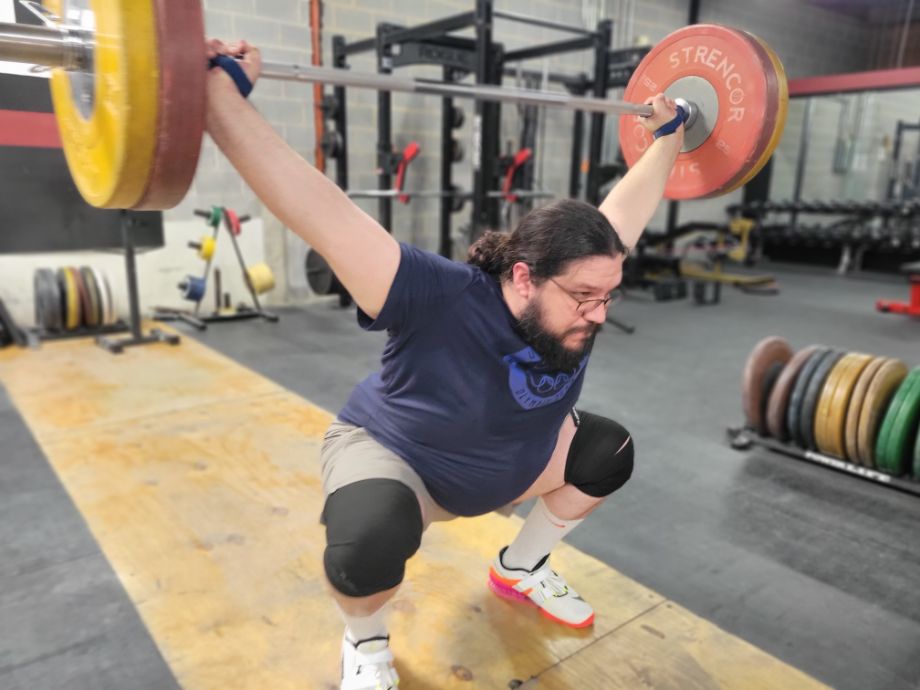
The research supports this, as a 2023 study8 found that men supplementing with whey protein noticed significantly more muscle gain compared to those who received a placebo.
May Help Improve Workout Performance
Whether you’re a bodybuilder, CrossFit athlete, powerlifter, or fitness enthusiast of any kind, protein powder can improve your workout performance over time. Better workouts mean better results, especially if you’re recovering adequately between workouts with proper sleep and nutrition.
RELATED: Best Muscle Recovery Supplements
The International Society of Sports Nutrition reviewed the available research9 on the topic and found that regularly using a protein supplement improves performance in weightlifting activities.
Is a Complete Source of Protein
Finally, most protein powders will be complete protein sources, naturally rich in BCAAs and other amino acids that aid muscle recovery. The exact amino acid profile may vary depending on the type of protein used.

Many plant-based, whole-food sources of protein in nature are incomplete proteins, meaning they don’t contain all of the amino acids. Protein powders can benefit those following a plant-based diet or those who have a lactose allergy and struggle to consume the recommended amount of protein to build muscle.
The best vegan protein powders are carefully formulated to include all the amino acids needed. So, a plant-based protein powder can be just as good as whey protein, helping with protein synthesis and muscle repair after resistance training.
Pre-Workout vs Protein Powder: Which is Better?
Overall, both supplements can play a role in your fitness journey and have lasting benefits for performance in the gym and recovery afterward.
Pre-workout supplements are better for those already getting enough protein but need a little extra boost to get through tough workouts. Maybe you didn’t sleep well, had a long day at work, or you’re feeling low energy on your weight loss journey–whatever the case, a good pre-workout can provide a nice pick-me-up to get you through a workout session.
On the other hand, if you struggle to eat enough protein every day, you’ll struggle to recover and build muscle, no matter how energized you are. If that sounds like you, and you’re not eating that much daily protein, protein powder will be the better choice.
RELATED: How Much Protein Do I Need?
Pre-Workout vs. Protein Powder: Final Thoughts
Both pre-workout supplements and protein powder are useful supplements for all sorts of fitness enthusiasts, even though they have different purposes.
A good pre-workout will improve your performance in the gym, while protein powder will help improve your recovery and muscle growth outside of the gym. One isn’t better than the other, as both have plenty of benefits and are great options to add to your supplement stack.
Pre-Workout vs. Protein Powder: FAQs
Is protein powder the same as pre-workout?
No, protein powders contain the amino acids found in protein sources and are generally used for recovery and muscle growth. Pre-workouts often contain stimulants, among other ingredients, designed to improve your workout performance.
Can a protein shake replace pre-workout?
Drinking a protein shake before your workout won’t replace the benefits of most pre-workout ingredients that help increase energy, strength, power, and blood flow to your muscles.
Is it better to eat protein pre or post-workout?
You can consume protein pre-workout or post-workout, as both can be beneficial. The biggest factor to consider is digestion, as whole-food protein sources may be uncomfortable to eat before a workout, while protein powders may digest more easily.
Does pre-workout help build muscle?
Yes, in a way. Pre-workout supplements can indirectly help build muscle. They contain ingredients that help you perform better in each workout, which can help build muscle if you’re getting adequate nutrition and recovering between workouts. Taking a pre-workout alone won’t build more muscle; a comprehensive training plan, proper nutrition, and recovery are all needed to build muscle over time.
References
- Jagim AR, Camic CL, Harty PS. Common Habits, Adverse Events, and Opinions Regarding Pre-Workout Supplement Use Among Regular Consumers. Nutrients. 2019;11(4):855. Published 2019 Apr 16. doi:10.3390/nu11040855
- Schoenfeld BJ, Aragon A, Wilborn C, Urbina SL, Hayward SE, Krieger J. Pre- versus post-exercise protein intake has similar effects on muscular adaptations [published correction appears in PeerJ. 2017 Aug 1;5:]. PeerJ. 2017;5:e2825. Published 2017 Jan 3. doi:10.7717/peerj.2825
- Izquierdo M, Ibañez J, González-Badillo JJ, Gorostiaga EM. Effects of creatine supplementation on muscle power, endurance, and sprint performance. Med Sci Sports Exerc. 2002;34(2):332-343. doi:10.1097/00005768-200202000-00023
- Grgic J, Trexler ET, Lazinica B, Pedisic Z. Effects of caffeine intake on muscle strength and power: a systematic review and meta-analysis. J Int Soc Sports Nutr. 2018;15:11. Published 2018 Mar 5. doi:10.1186/s12970-018-0216-0
- Trexler ET, Smith-Ryan AE, Stout JR, et al. International society of sports nutrition position stand: Beta-Alanine. J Int Soc Sports Nutr. 2015;12:30. Published 2015 Jul 15. doi:10.1186/s12970-015-0090-y
- Gough LA, Sparks SA, McNaughton LR, et al. A critical review of citrulline malate supplementation and exercise performance. Eur J Appl Physiol. 2021;121(12):3283-3295. doi:10.1007/s00421-021-04774-6
- Alvares TS, Conte CA, Paschoalin VM, et al. Acute l-arginine supplementation increases muscle blood volume but not strength performance. Appl Physiol Nutr Metab. 2012;37(1):115-126. doi:10.1139/h11-144
- Kim CB, Park JH, Park HS, Kim HJ, Park JJ. Effects of Whey Protein Supplement on 4-Week Resistance Exercise-Induced Improvements in Muscle Mass and Isokinetic Muscular Function under Dietary Control. Nutrients. 2023;15(4):1003. Published 2023 Feb 16. doi:10.3390/nu15041003
- Jäger R, Kerksick CM, Campbell BI, et al. International Society of Sports Nutrition Position Stand: protein and exercise. J Int Soc Sports Nutr. 2017;14:20. Published 2017 Jun 20. doi:10.1186/s12970-017-0177-8


